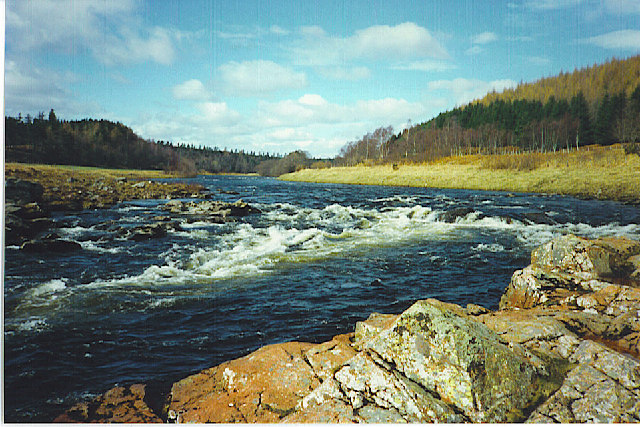
Millions of trees are being planted beside Scotland’s remotest rivers and streams to protect wild salmon from the worst effects of climate heating.
Fisheries have planted 250,000 saplings along key tributaries of the River Dee and plan to plant a million by 2035.
LINK (via: The Guardian)






Okay, so that’s the lovely River Dee’s waters on their way to being cooled down a little and made a little more user-friendly for returning Atlantic salmon and their resulting ova, fry, parr and descending smolts, but what about the much-warmed and almost certainly now migrating juvenile salmon-hostile North Atlantic, chaps? I am increasingly inclined to think now that the salmon rivers of Scotland, England and Wales could be helped or made to produce as many ocean-going smolts as we Anglers and their much-invested owners could ever desire, but , unless the little leaving critters actually reach the Arctic feeding grounds unscathed (and find plentiful food there), it’s all just “Nothing to do with us, not our fault, this blasted salmon crash”, facelifted rivers “cosmetics”.
At least a reasonable effort is being made despite the many unknown unknowns!
No one can predict or guarantee the outcome but that should not prevent us from trying!! Those trees will absorb some CO2 and help stabilize the river banks from erosion at the very least!
The new shade-trees will do no harm whatsover, Mike, but the Dee and many British and Irish rivers were, year in, dependable though fluctuating (big years – small years) year out, producing salmon by the net- and rod-caught ton until around 25 years ago without them, until the great, slow at first, then suddenly super-fast Pfff! Gone! dying happened.
Thw owners and fishers tutted in exasperation and did nothing, except to look impotently on and bitterly complain and, in the wealthier cases, begin hitting the newly available in the early 1990s Russian Kola, where they could catch more salmon in a week, even in a day, than they could in a decade on their now totally shot domestic rivers.
And so it went on.
Now we have upper-case M Management.
https://missingsalmonalliance.org/news/msa-experts-play-vital-role-in-international-year-of-the-salmon-seminar-series
And studies and reports and breeze-shooting meetings held and internationally flying done to discusss the dearth of salmon.
Meanwhile, the climate changes, the Arctic ice melts, the seas warm and the little little southern-ranges migrating smolts cook with them before they can reach the Greenland feeding grounds.
“But WHAT is to blame?” the Management wails. “Salmon farming? The predators (riverine and marine birds, coastal and estuarine seals, everything up to and including Orcas)? The wholesale netting of sandeels and other oily fish for agricultural feed? (Etc, etc, et ruddy Likely Suspects cetera)”
Lot of money being spent on the “stable” far too belatedly, I believe, long after the environmental horse concerned bolted.
Hence my scepticism about the new and ever-proliferating “Put Out More Multi-$$$s/£££s Salmon-Saving Project Flags!” Crews. We are going to have to start acting as if we really mean what we keep saying about saving the planet, the seas, Nature and ourselves (and “Our” big bucks sacred cow salmon) by actually cooling it, and not after the next the bar nine inconclusive in-depth, in-house scientific report hits the Smart Usual Suspects Save the Salmon Set’s doorsteps, but in the real world – real people here and NOW!
“I’m afraid his is going to sting a little…”
Boote, a man who once caught a fair number of those lovely but long-cursed by their strident Salar Mafia advocates and do-nothing none-too-bright owners creatures, out.
One correction to the hastily bashed out above:
Lot of money being spent on the “stable door” being far too belatedly closed long after the environmental horse concerned bolted.